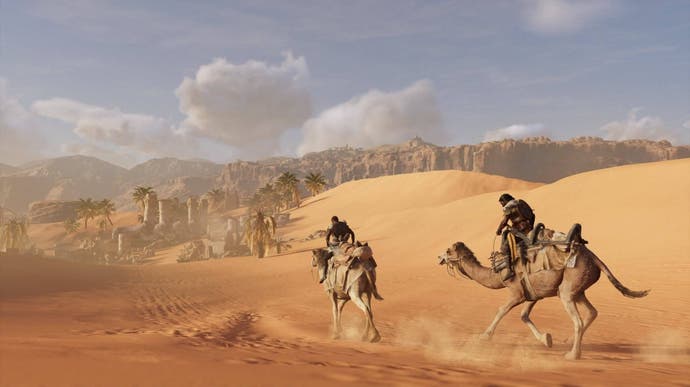From Final Fantasy 12 to Uncharted 3: exploring gaming's Orientalist fantasies
Bazaar new worlds.
Over the last couple of months I've been falling in love all over again with Final Fantasy XII. I know I'm late to the Zodiac Age party, but I've been marvelling at how much this game has come into its own since its original release back in 2006. Certainly the remaster's smoothing-off of the original's (literal) rough edges helps, but I'm not the first to observe that it feels a bit like gaming has caught up with some of its ideas that weren't fully appreciated at the time like its distinctive automated battles. Or maybe it's just that I'm in a different place in my life, and FF12's peculiarly hands-off approach to monster hunting fits so much better into what a 30-something wants after a day at work than it did the long holidays of a student with time on his hands.
Its idiosyncratic systems are what FF12 is best known for, but they're not the only thing that's distinctive about it. Let's talk about that setting and art direction. Where most other fantasy RPGs go for worlds drawn from the European middle ages and Tolkienesque clichés of elves, dwarves and orcs, FF12 instead bases its convoluted adventure in a land inspired by the Near and Middle East. It doesn't map straightforwardly on to any particular real-world counterpart, but all the tropes and stereotypes of a magical, fantastical East are there, particularly in its early portions. It's filled with bazaars and deserts, nomads and wadis, billowing silk trousers and men smoking hookahs.
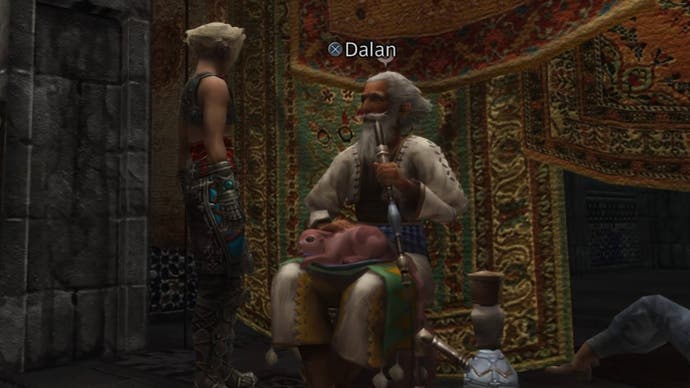
The developers visited the east Mediterranean to gather inspiration - especially Turkey - and have also mentioned India as a source of ideas. So we have the starting kingdom of Dalmasca and its echoes of Damascus, while the dialogue in the floating city of Bhujerba is seasoned with a liberal helping of Sanskrit.
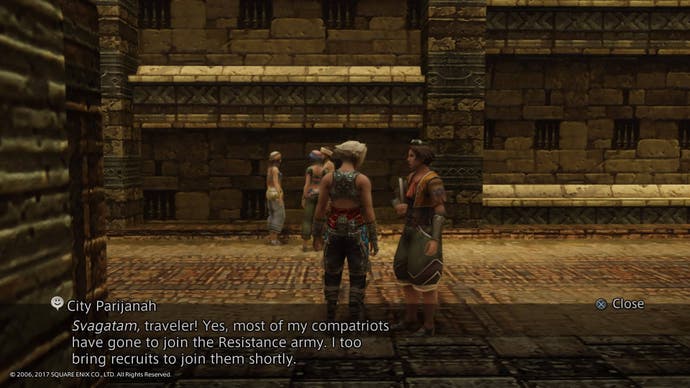
For long-term RPG fans jaded by the cavalcade of inns, forests and dwarven mines, this is a welcome breath of fresh desert air (OK, to be fair it does have its share of both mines and forests, but they do feel rather different from the European folklore-inspired ones we see in games like The Witcher, Skyrim or Zelda). It gives it a real sense of place and makes for some beautiful visuals that really get to shine now they're freed from the resolution limitations of the PS2. It also offers an interesting new context for the Near and Middle Eastern elements that have long been part of the Final Fantasy series' lore and traditions, from Gilgamesh and Tiamat to Ifrit (though ironically the latter is an airship rather than a fire-djinni this time round).
I came back to FF12 off the back of another East Mediterranean-inspired game, Assassin's Creed Origins. There too I found the world-building and visual flair compelling, and I'm not the only one, to judge from its recently-added tourist-cum-educational mode. Both these games make excellent use of setting to lift themselves above the general mass of what's released and to distinguish themselves within long-running series which have to work hard to garner the interest and excitement they once did.
But this double-bill got me thinking about exactly how games portray 'the east'. The magic and exoticism they trade on is deeply embedded not so much in the reality of the areas that inspired them, but in a long tradition of western fantasies about the 'East' that stretches from Christmas pantos of Aladdin to Virgil's Aeneid and its sexy Carthaginian queen Dido, tempting the hero Aeneas away from his duty to plant the seed for the future Rome with the promise of luxury, power and sex. Visually, FF12 and Assassin's Creed both draw on European artistic visions of 'the orient' from the nineteenth and early twentieth century. Assassin's Creed's designers have openly acknowledged their heavy visual debt to the British artist David Roberts, who toured Egypt and the Levant with his sketchbooks in the first half of the nineteenth century. I've loved Roberts' work for a long time now; it's peaceful, dreamlike and exotic, offering Romantic vistas of fading ruins emerging from the sands. I don't think anyone with even a passing familiarity with his art could play Assassin's Creed Origins, or indeed any of the series, for long without seeing the parallels.



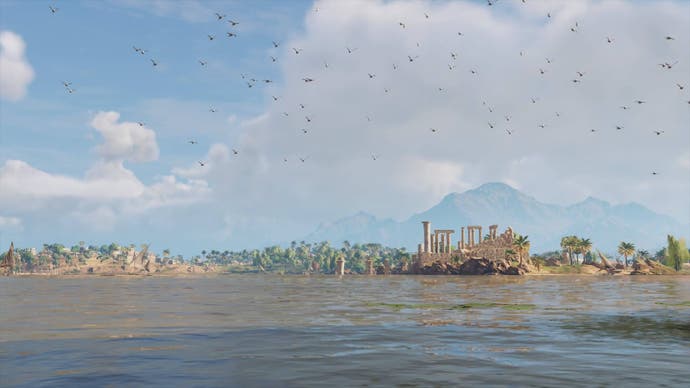
FF12's artistic forebears aren't as clear-cut as Assassin's Creed's, but you don't have to look too far among Roberts' contemporaries' takes on 'the East' to see resonances.
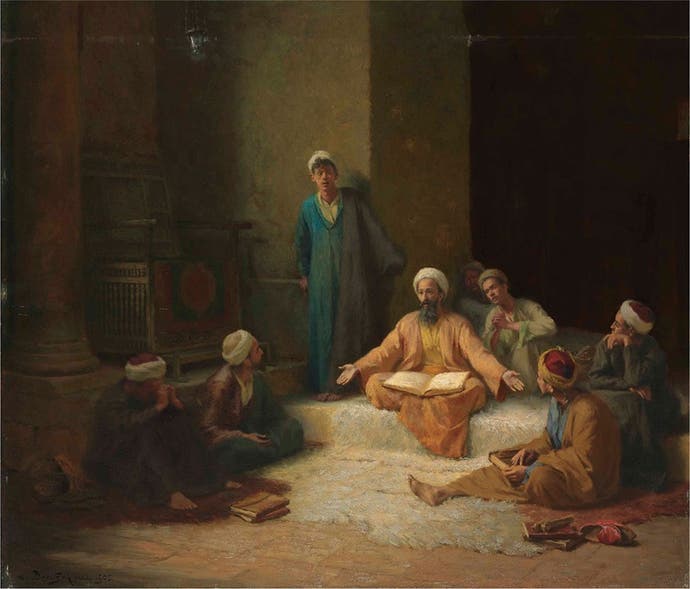
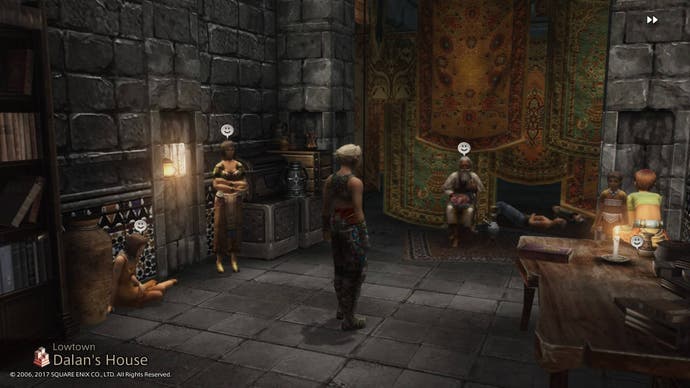
This is a style of art known as orientalist. It's a world of dust and light and smoke, rich colours and exotic detail; sensuous and sexy, obsessed with luxurious fabrics, harems and strung-out odalisques, lounging in the sultry heat.

A lot of this art is undeniably beautiful, in that slightly overwrought, lurid way the Victorians did so well. It's hard not to get caught up in its heady and exotic visions - we've been raised on them since childhood. But it's also a long way from being unproblematic.
In 1978 the Palestinian scholar Edward Said published a devastating and extremely influential critique of art like this and the literature and ideas that accompany it. He showed how it worked to create a vision of 'the East' (as if that's a single thing) in western imagination that was sensuous but decadent, rich but undeveloped, mystical and unknowable, sexually titillating but also forbidden, effeminate and corrupt. It was, in short, exotic and fundamentally other. As ever, these lurid fantasies tell us far more about how the people who created them liked to think about themselves, what their fears and fantasies were, than they do about the real cultures they profess to portray. Worse, these stereotypes helped - and continue to help - justify and legitimise western colonialism and exploitation of the Middle East and India. We're kidding ourselves if we think we're entirely free of them now.
Hang on, you're probably thinking, Final Fantasy 12 is Japanese. Am I really accusing a piece of art made in east Asia of being orientalist and a vehicle for western colonialism? No, I'm not. It's not about accusing people of anything, so much as recognising where some of the themes and artistic roots of the things we enjoy come from. I do think we can trace a visual influence from orientalist art into FF12, but the final product is complex and defies easy labels. On the one hand, even within the ethnically diverse world of the game, the player party is overwhelmingly white-skinned, western and traditional - blonde princesses, knights and thieves. With the exception of Fran, the sexy, brown-skinned half-naked magical bunny-elf (a few issues with othering and male fantasy there), it's a team that could fit seamlessly into any Final Fantasy. On the other, the game's plot actively engages with ideas of western colonialism in the Near East. Its evil empire, Archades, has a Greek-style name, a western-looking capital city and generally English accents. Sure, the plot is basically a find-and-replace of Star Wars, with added JRPG goodness (and Star Wars is itself no stranger to orientalism) so we shouldn't expect too much nuance there, but there's at least a sense that FF12 is questioning and engaging the ideas behind western orientalism even as it lifts from it visually. Or, less charitably, that it's having its cake and eating it.
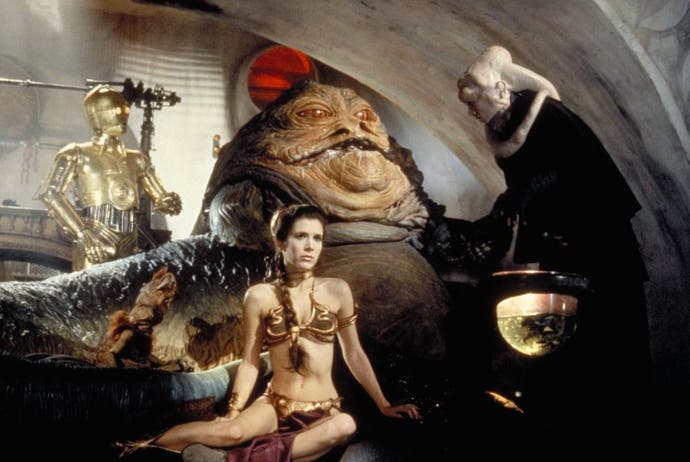
And of course, FF12 and Assassin's Creed aren't the only games to draw from this tradition. Assassin's Creed's stablemate and predecessor, Prince of Persia, is as textbook an example as we could hope for, especially in its 2D or Sands of Time incarnations; Zelda has its Gerudo, with their desert oases, floaty trousers, scimitars and vaguely subversive gender norms; Uncharted 3 leans heavily on the orientalist legacy of T.E. Lawrence and his Arab horsemen pals, via, as ever, Indiana Jones.
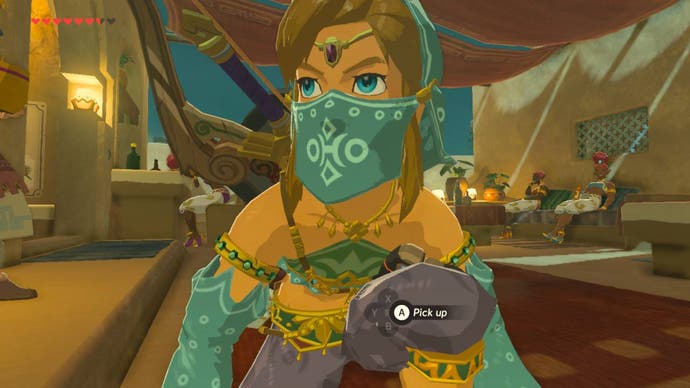

It's not just historical or fantasy games either: I could write reams about how the likes of Call of Duty portray the contemporary Middle East as a homogeneous, unsophisticated playground for military escapades, filled with violent religious radicals with their barbarian traditions. Many others have already done so. It's enough here to point out that when they decided to depict the Pakistani city of Karachi in Modern Warfare 2, they didn't even get the language right, opting for Arabic instead of Urdu. Because Arabic's what people in the exotic and dangerous East speak, right?
I'm not saying all these games are racist. Well, OK, maybe I am, a bit. But I'm definitely not saying we shouldn't enjoy them or find their worlds appealing. Their worlds are appealing - that's the point of fantasies - and for hundreds, even thousands, of years western culture has trained us to recognise and respond to these visions. But we can afford to be conscious of what they are, where they come from, and the effects they have for the genuine cultures and peoples of the Middle East. We can encourage developers to represent the specifics and particularities of Middle Eastern and Asian cultures, rather than subsuming them into a great big remixed hodgepodge; and we can support games and creators that come out of these regions themselves and depict them from a position of knowledge.

There have been occasional games from Middle Eastern creators that have garnered attention in the west - I'm thinking especially of the recent 1979 Revolution: Black Friday, with its portrayal of the Iranian revolution - but generally there has been less game development from the region than we might expect. It's surely only a matter of time before this changes, though. A recent gamesindustry.biz article puts the Middle East and Africa as the world's most rapidly growing gaming community. There's a large, relatively untapped market there which is going to want more from how it is depicted in games than the usual hoary old stereotypes of sexy harems, bustling bazaars and dangerous militants waving scimitars or AK47s. This doesn't even mean losing the magic and wonder of the east in quest of the mundane, realistic and representative. I for one would love to see a take on the myths and history of Near and Middle Eastern cultures from their own perspectives, rather than mediated through centuries of western colonialist attitudes. Just as Final Fantasy 12's fusion of Orientalism with JRPG elements created something interesting, distinctive and memorable, new takes on these old settings and ideas are surely good for all of us.
